Old Browser
This page has been recently translated and is available in French now.
Looks like you're visiting us from {countryName}.
Would you like to stay on the current country site or be switched to your country?
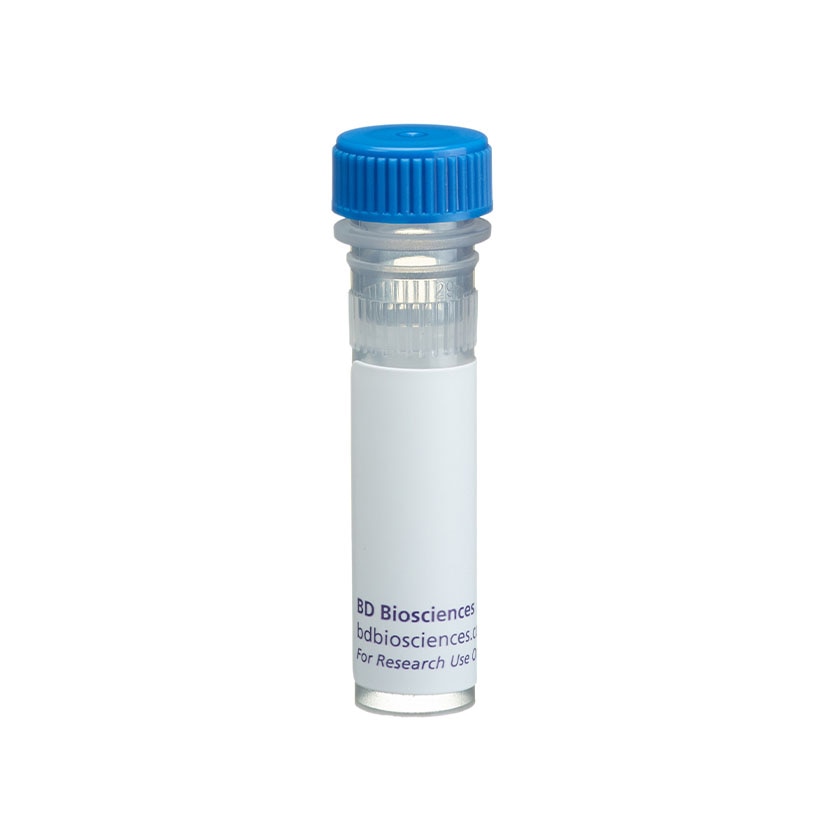

Regulatory Status Legend
Any use of products other than the permitted use without the express written authorization of Becton, Dickinson and Company is strictly prohibited.
Preparation And Storage
Recommended Assay Procedures
ELISA: The purified TN3-19.12 antibody (Cat. No. 557516) can be used as a capture antibody for a sandwich ELISA that measures TNF protein levels:
MOUSE TNF ELISA: The purified TN3-19.12 capture antibody (Cat. No. 557516) can be paired with the biotinylated Fab anti-Mouse/Rat TNF (Cat. No. 558415) as the detection antibody and with recombinant mouse TNF protein (Cat. No. 554589) as the cytokine standard in a sandwich ELISA for measuring mouse TNF protein levels.
RAT TNF ELISA: The purified TN3-19.12 capture antibody (Cat. No. 557516) can be paired with the biotinylated Fab anti-Mouse/Rat TNF (Cat. No. 558415) and with recombinant rat TNF protein (Cat. No. 555109) as the cytokine standard in a sandwich ELISA for measuring rat TNF protein levels.
The capture and detecting antibody preparations should be titrated from 0.5 - 2 µg/ml to determine their optimal concentrations for ELISA. To obtain linear standard curves, doubling dilutions of TNF protein ranging from ~2,000 to 5 pg/ml are recommended for inclusion in each ELISA plate. For specific methodology, please visit the protocols section or chapter on ELISA in the Immune Function Handbook, both of which are posted on our web site, www.bdbiosciences.com. These ELISA antibody pairs show no cross-reactivity with other tested cytokines including mouse IL-1α, IL-2, IL-3, IL-4, IL-5, IL-6, IL-7, IL-9, IL-10, IL-12 p70, IL-15, GM-CSF, IFN-γ, MCP-1, TCA-3 and human: TNF.
Note: The BD OptEIA™ ELISA Kits and Sets are specially formulated for cytokine measurements in serum or plasma samples. For mouse TNF, the Mouse TNF OptEIA Set, Cat. No. 558534 and Mouse TNF OptEIA Kit, Cat. No. 559732 is recommended. For rat TNF, the Rat TNF OptEIA Set, Cat. No. 558535 and the Rat TNF OptEIA Kit 550734 are recommended.
OTHER APPLICATIONS
In vitro neutralization: The NA/LE™ format of the TN3-19.12 antibody (Cat. No. 557370) is useful for neutralization of mouse TNF bioactivity.
Blocking Control for Intracellular Staining: The purified TN3-19.12 antibody can be used as a blocking control to demonstrate specificity of TNF staining by conjugated TN3-19.12 antibodies.
IP/WB: The TN3-19.12 antibody has been reported to be useful for immunoprecipitation and Western blotting. Please note that these applications are not routinely tested at BD Biosciences.
Product Notices
- Since applications vary, each investigator should titrate the reagent to obtain optimal results.
- Please refer to www.bdbiosciences.com/us/s/resources for technical protocols.
- Caution: Sodium azide yields highly toxic hydrazoic acid under acidic conditions. Dilute azide compounds in running water before discarding to avoid accumulation of potentially explosive deposits in plumbing.
- Although hamster immunoglobulin isotypes have not been well defined, BD Biosciences Pharmingen has grouped Armenian and Syrian hamster IgG monoclonal antibodies according to their reactivity with a panel of mouse anti-hamster IgG mAbs. A table of the hamster IgG groups, Reactivity of Mouse Anti-Hamster Ig mAbs, may be viewed at http://www.bdbiosciences.com/documents/hamster_chart_11x17.pdf.
- Sodium azide is a reversible inhibitor of oxidative metabolism; therefore, antibody preparations containing this preservative agent must not be used in cell cultures nor injected into animals. Sodium azide may be removed by washing stained cells or plate-bound antibody or dialyzing soluble antibody in sodium azide-free buffer. Since endotoxin may also affect the results of functional studies, we recommend the NA/LE (No Azide/Low Endotoxin) antibody format, if available, for in vitro and in vivo use.
Companion Products
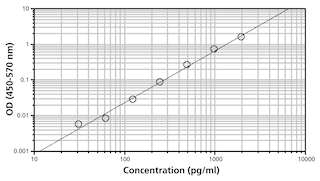
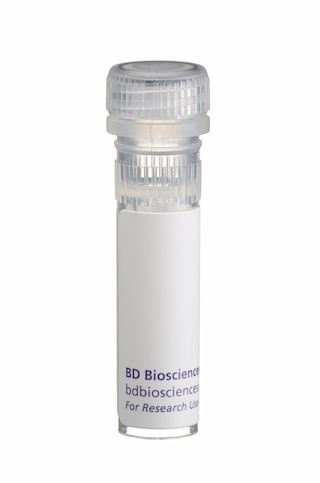
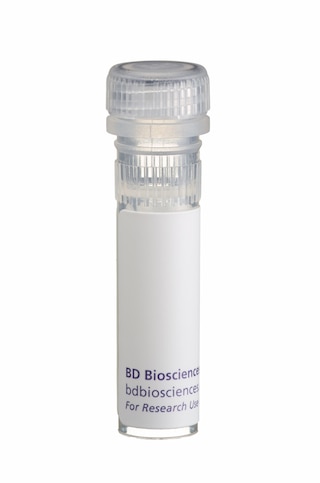
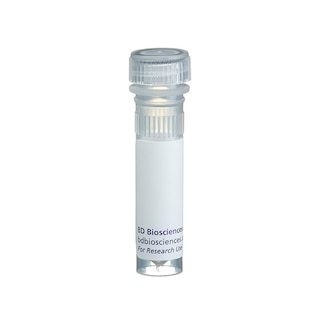
The TN3-19.12 antibody reacts with rat and mouse tumor-necrosis factor (TNF) proteins (also known as TNF-α) . Moreover, the TN3-19.12 antibody is reported to crossreact with rabbit TNF, but it does not crossreact with mouse lymphotoxin-α (LT-α, also known as TNF-β) nor with human TNF. The immunogen used to generate the TN3-19.12 hybridoma was E. coli-expressed, purified recombinant mouse TNF protein. This monoclonal antibody has been reported to neutralize the bioactivities of mouse, rat and rabbit TNF.
This antibody is routinely tested by ELISA. Other applications were tested at BD Biosciences Pharmingen during antibody development only or reported in the literature.
Development References (6)
-
Ferran C, Dautry F, Merite S, et al. Anti-tumor necrosis factor modulates anti-CD3-triggered T cell cytokine gene expression in vivo. J Clin Invest. 1994; 93(5):2189-2196. (Clone-specific: Neutralization). View Reference
-
Leiby DA, Fortier AH, Crawford RM, Schreiber RD, Nacy CA. In vivo modulation of the murine immune response to Francisella tularensis LVS by administration of anticytokine antibodies. Infect Immun. 1992; 60(1):84-89. (Clone-specific: Neutralization). View Reference
-
Merrick BA, He CY, Craig WA, et al. Two dimensional gel electrophoresis of cellular and secreted proteins from rat alveolar macrophages after lipopolysaccharide treatment. Appl Theor Electrophor. 1992; 2(6):177-187. (Clone-specific: Immunoprecipitation, Western blot). View Reference
-
Rabinovici R, Bugelski PJ, Esser KM, et al. Tumor necrosis factor-alpha mediates endotoxin-induced lung injury in platelet activating factor-primed rats. J Pharmacol Exp Ther. 1993; 267(3):1550-1557. (Clone-specific: Neutralization). View Reference
-
Sheehan KC, Ruddle NH, Schreiber RD. Generation and characterization of hamster monoclonal antibodies that neutralize murine tumor necrosis factors. J Immunol. 1989; 142(11):3884-3893. (Immunogen: ELISA, Immunoprecipitation, Neutralization, Western blot). View Reference
-
Takahashi S, Kapas L, Fang J, Krueger JM. An anti-tumor necrosis factor antibody suppresses sleep in rats and rabbits. Brain Res. 1995; 690(2):241-244. (Clone-specific: Neutralization). View Reference
Please refer to Support Documents for Quality Certificates
Global - Refer to manufacturer's instructions for use and related User Manuals and Technical data sheets before using this products as described
Comparisons, where applicable, are made against older BD Technology, manual methods or are general performance claims. Comparisons are not made against non-BD technologies, unless otherwise noted.
For Research Use Only. Not for use in diagnostic or therapeutic procedures.
Report a Site Issue
This form is intended to help us improve our website experience. For other support, please visit our Contact Us page.